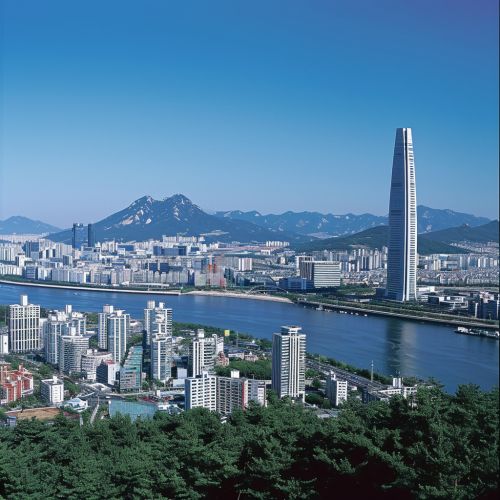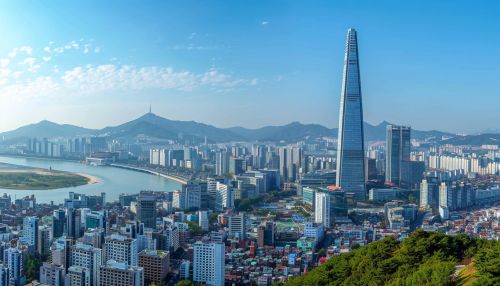Seoul
Geography
Seoul, officially known as the Seoul Special City, is the capital and largest metropolis of South Korea. It is located in the northwest part of the country, along the Han River. The city is bordered by eight mountains, as well as the more flat areas of the Han River plain and western areas. Due to its geographical location and the surrounding landscape, Seoul has a humid continental and subtropical climate, with four distinct seasons.


History
Seoul has a rich and complex history that dates back over 2,000 years. It was founded in 18 BC by the people of the Baekje Kingdom, one of the Three Kingdoms of Korea. The city was then known as Wiryeseong. In the 14th century, the city became the capital of the Joseon Dynasty, and was renamed Hanyang, and later Hanseong. The city was renamed Seoul during the Korean Empire period in the late 19th and early 20th centuries. Seoul was the capital of South Korea when it was established in 1948, following the division of Korea into North and South.
Economy
Seoul is the economic center of South Korea. It is home to many major multinational corporations, including Samsung, LG, and Hyundai. The city's economy is diverse, with a mix of industries including technology, finance, manufacturing, and retail. Seoul also has a vibrant startup scene, with a growing number of tech startups. The city's economy is also supported by tourism, with millions of tourists visiting Seoul each year.
Culture
Seoul is a hub of culture and arts in South Korea. The city is home to many museums, including the National Museum of Korea, which houses a vast collection of Korean art and artifacts. Seoul is also known for its music scene, particularly K-pop, and is home to many entertainment companies. The city also hosts numerous cultural festivals throughout the year, such as the Seoul Lantern Festival and the Seoul International Film Festival.
Education
Seoul is the educational center of South Korea, with over 40 universities and colleges located in the city. This includes some of the country's most prestigious institutions, such as Seoul National University, Yonsei University, and Korea University. The city also has a high concentration of primary and secondary schools, both public and private.
Transportation
Seoul has a highly developed transportation network, which includes roads, buses, taxis, bicycles, and an extensive subway system. The Seoul Metropolitan Subway is one of the busiest and most efficient in the world, with over 300 stations and lines that extend well beyond the city limits. The city is also served by two international airports: Incheon International Airport and Gimpo International Airport.
